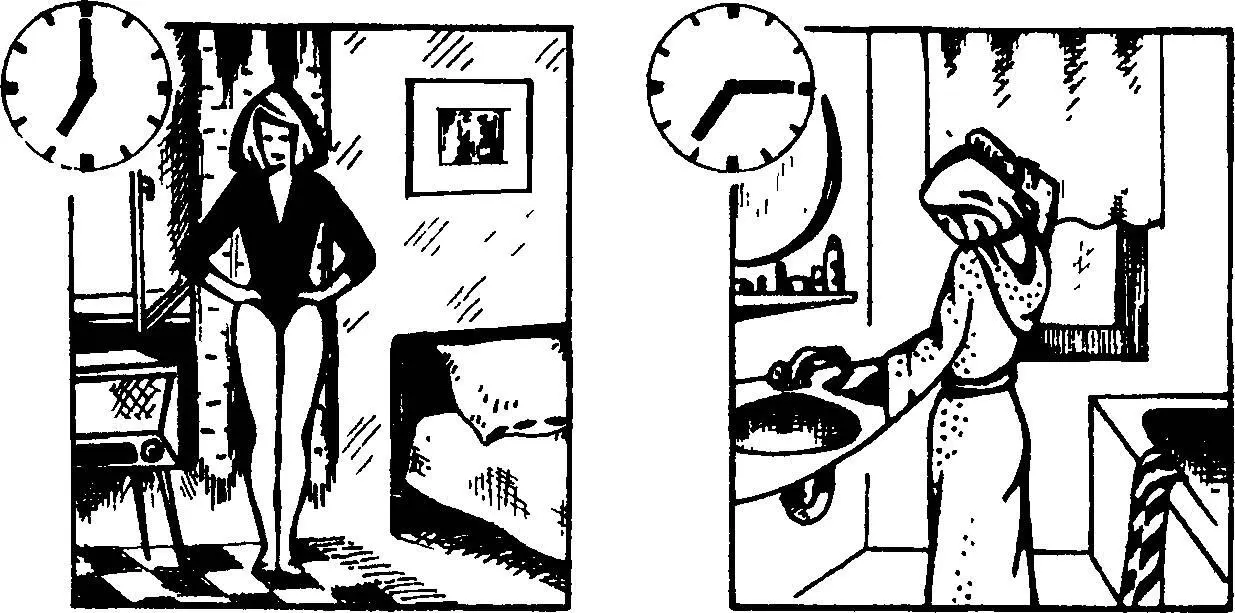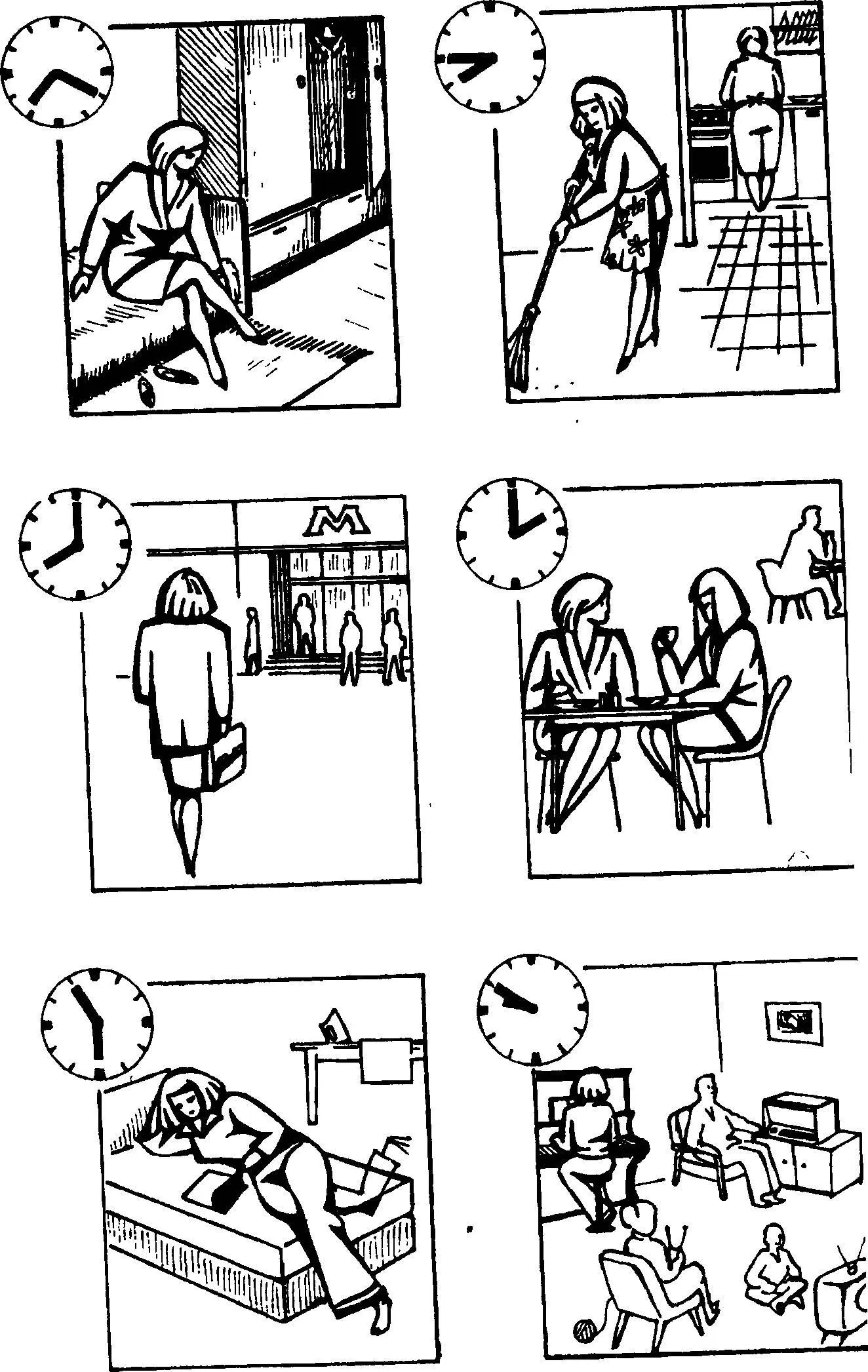Владимир Аракин - Практический курс английского языка 1 курс
- Название:Практический курс английского языка 1 курс
- Автор:
- Жанр:
- Издательство:ВЛАДОС
- Год:1998
- ISBN:нет данных
- Рейтинг:
- Избранное:Добавить в избранное
-
Отзывы:
-
Ваша оценка:
Владимир Аракин - Практический курс английского языка 1 курс краткое содержание
I - V курсов педагогических вузов.
Цель учебника – обучение устной речи на основе развития необходимых автоматизированных речевых навыков, развитие техники чтения, а также навыков письменной речи.
Практический курс английского языка 1 курс - читать онлайн бесплатно полную версию (весь текст целиком)
Интервал:
Закладка:
III.
Answer the following questions:
1. Have you had dinner yet? 2. Have you had coffee today? 3. Has your
brother left for Kiev? 4. Has she ever met my elder brother? 5. Has Mary been to
the canteen yet? 6. Have you found anything to your taste on the menu? 7. Have
they paid for the lunch yet? 8. What book have you discussed today? 9. How
much have you paid for the supper? 10. You have learned this poem by heart,
haven't you? 11. You have made few mistakes in spelling, haven't you? 12. Where
165

have you found this book? 13. Which lesson have you learned by heart? 14. What
English books have you read yet?
IV. Choose the right verb:
to tell — to say
1. Mr. Smith -{(JJ $/lr. Brown it is time to have a break for lunch. 2. Mr.
Sandford u'.:Ms son he is going to London. 3. Mrs. Watson ... her children that
they must not go out on such a nasty day. 4. Susan ... her friends that she has a lot
of work to do. 5. Mrs. Smith ... her sons that she has already made toasts for
them. 6. John ... his brother is a perfect sportsman. 7. The boy ... he is not going
to stay at home on such a fine day. 8. Tom ... his friend that he is always up at
eight. 9. The mother ... that she has already served breakfast. 10. The teacher ...
the student that he has made only a few mistakes in pronunciation. 11. The boy ...
he has already aired the room. 12. The girl... her mother that she doesn't like
boiled eggs. 13. The monitor. . we are going to have a sitting of our English club
tonight. 14. Mike ... his little brother is a very hard-working boy.
V. Use the following sentences i n indirect speech. Make all the necessary changes:
1. Mary says to me: "I am already finishing this book." 2. The girl says to her
mother: "I don't like porridge." 3. Tom says to his friend: "I am going to the
canteen." 4. The boy says to me: "I'm thirsty." 5. The teacher says to the students:
"You must be ready for the written test tomorrow." 6. Nick says to his mother: "I
have already had сЦппег." 7. Boris says to me: "My father is leaving for Kiev." 8.
Nick says to me: "I have already paid for the lunch." 9. Ida says to her friends:
"There/is nothing to my taste on the menu." 10. The girl says to her sister: "I
haven't finished my supper yet." 11. Tom says: "I can speak two foreign
languages: English and Spanish." 12. Mary asks: "Has the bell gone?" 13. Tom
asks: "Is Mary staying at home?" 14. Nick says to Ann: "Don't forget to air the
room." 15. John asks his father: "Has she left?" 16. Tom asks Mary: "What is our
next lesson?"
TEXT 1
.
A STUDENTS DAY
1. What js there in this picture? There is a bedroom in it. Is it„still darkTn the
room? No, it is already light. What time is it now? The clock has just struck seven.
Who(m) do you see in
this picture? We see Mary in it. Isshe still asleep?No, she is not. She is
already up, she has opened the window and turned onthe radio. She is doingher
morning exercises to the music.What is she going to do next? She is going to
have a wash.
2. It is a quarter past seven. Mary is in the bathroom. Shei has just taEena
cold shower, driedherself on the toweland cleanedher teeth. Now she Js doing
166
her hair before the looking-glass. What is she going to do next? She is going to
dress.
3. Mary is in the bedroom again. She has already brushedher clothes and
shoes. What is she doing now? She is dressing. She has just put onher dress. She
is putting on her shoes now. Has she made her bed yet? Yes, she has.
4. It is a quarter to eight The family has already had breakfast. While Mary is
sweepingthe floor with a broom her mother is washing up. Is Mary going to stay
at home? No, she is not She is going to the Institute.
5. It is eight o'clock. Mary is hurrying to the Institute. She is a first-year
studentof the English faculty. Her classesbegin at half past eight. Mary isnever
late forher classes. Does she walk to the Institute? No, she does not. She goesto
the Institute by Metro.How long does it take her to get tothe Institute? It takes
her half an hourjto 9et there.
6. Jt is two <���Ус1осю Has the bell gone?Yes, it has. The classes are over.
Mary and her friends are having dinner. Are they going home after dinner? No,
they are not. Mary is going to the laboratory to have some practicein
pronunciation. Her friends are going to the reading-room to prepare their
homework there.
167

168
2. It is nearly six o'clock in the evening. Mary has just come home after a
walk. She is having a short rest now. She is reading. Is Mary going to do any
work about the house? Yes, she is She is going to ironher father's shirts.
3. It is ten minutes to ten. The working day is over. The family are all together,
Mary is playing the piano.Her brother David is repairingthe TV-set. Their
mother is knitting. Their father is going to turn on the radio and listen to the news.
The family are not going to bed yet.
TEXT 2 D I A L O G U E
E d w a r d : Hello, Mary!
M a r y : Hello, Eddy. It's so nice to see you.Come in, please. (Edward
comes in, takes o f f his coat and hangs it on the hook.)
E d w a r d : Look here,Mary, there's a concert this evening at the club. You
are sureto like it. What about going there together?
M a r y : Oh, I'm sorry I can't. I'm making a new dress. I want to wear it at our
party and I haven't finished it yet.
E d w a r d : Oh, dear, we haven't been to the club for ages.Besides, it's a pity
to stay at home on such a fine day, you know.
M a r y : All right. Eddy. But will you help me before we go? E d w a r d : Oh,
yes, why not?
M a r y : Something has gone wrong withmy electric iron. (Mary gives
the iron to Edward.) Can you putit right?
E d w a r d : Let me have a look atit. (Edward examines the iron.) Well,
there's nothing the matter with the iron.I'm sure it's the plug.
(Edward repairs the plug. Mary goes out to change. Then she
comes back to Edward.) E d w a r d : Here you are.
M a r y : How clever of you!Thank you ever so much! E d w a r d : Not at
all. Are you ready to go now? M a r y : Just a moment! I must switch off the light.
E d w a r d : Hurry up then. We're going to be late, I'm afraid. M a r y : I'm ready.
Come on. (Mary and Edward hurry out.)
VOCABULARY NOTES
to be asleepспать; Ant. to be awake
to turn on (off) the light (electricity, water, gas, TV-set, radio, tape-recorder, lamp,
tap)включать (выключать) свет (электричество, воду, газ, телевизор, радио,
магнитофон, лампу, кран); Syn. to switch on (off).
169
to do \
a lesson housework an exercise the room (flat, house) one's hair shopping,
ironing, washing, etc. good (harm)
to make /
a mistake
a report
a dress
tea
a fire
a present
money
friends (enemies) bed
to (the) musicпод музыку
wash vt мыть, to have a washмыться; to wash one's hairмыть голову; to wash
clothes (linen)стирать одежду, белье; to wash upмыть посуду
to take (to have) a bath (shower)принимать ванну, душ to dry (oneself) on (with)
a towelвытирать(ся) полотенцем clean vt чистить, очищать от грязи; to clean
one's teeth (nails, clothes, shoes)чистить зубы (ногти, одежду, ботинки); to clean
the blackboardстирать с доски; to clean the room (the flat)убирать комнату
(квартиру); to clean the windowпротирать окно
brush vt чистить (щеткой); to brush one's clothes (shoes, teeth)чистить
(щеткой) одежду (ботинки, зубы)
to put smth. onнадевать что-л., е. д. Put your coat on. It 'scold. Ant. to take
smth. offснимать что-л., e. g. Hetook his hat off and entered.
sweep (swept, swept)подметать a first-year
studentпервокурсник
classesл pi. занятия; in classна занятиях, е. д. Wehave done this exercisein
class, after classes,e, g. What are you going to do after classes?
to be late forопаздывать, e. g. Don't be late for the lecture,
go (went, gone)w идти; to go by bus (tram, train, Metro)ехать на
автобусе (трамвае, поезде, метро); to go to bedложиться спать It takes her
(half an hour)... Потребуется полчаса е. д. It
doesn't take him long to prepare his homework. How long has it taken
you to read this book?
get (got, got) v t / i становиться; to get toa placeдобираться ку-да-л.; to get
upвставать
Has the bell gone?Звонок был?
Читать дальшеИнтервал:
Закладка:





![Владимир Аракин - Практический курс английского языка 3 курс [calibre 2.43.0]](/books/1072035/vladimir-arakin-prakticheskij-kurs-anglijskogo-yazyk.webp)




